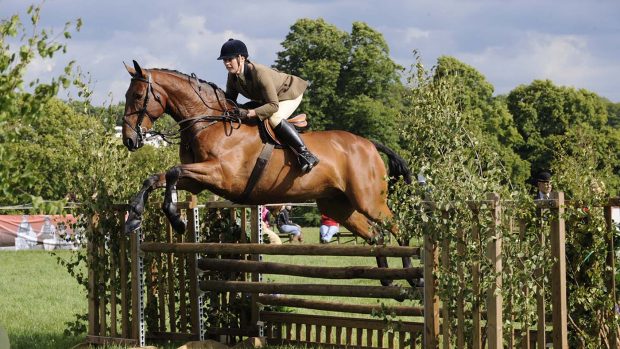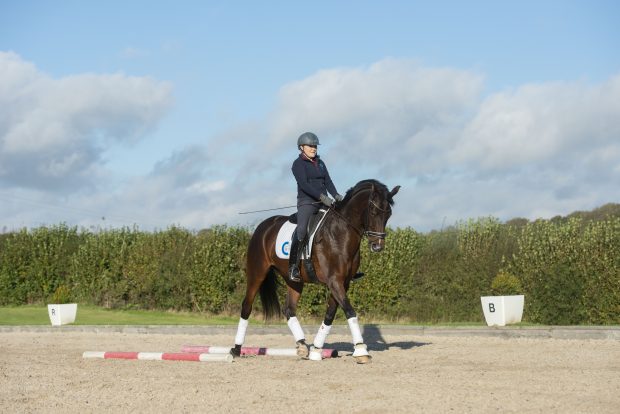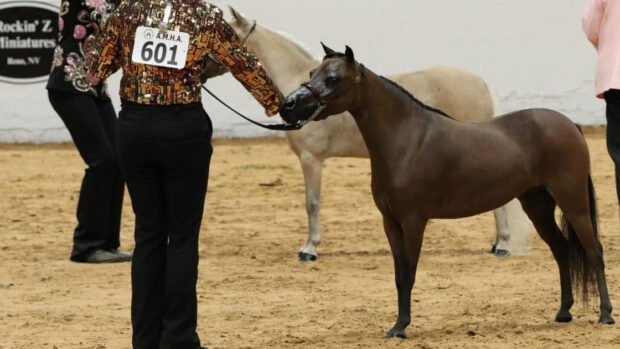So you are looking to buy a dressage horse? Don't part with your cash without reading this useful advice from top riders and producers who have years of experience finding potential dressage stars
When you are looking at dressage horses for sale, “you have to believe it can stand the training”.
That is the principal advice of Tim Brown, who runs a business in Northamptonshire with Antonia Brown producing dressage, event and showjumping horses.
But how can you be sure that a dressage horse you see advertised or go to try will be able to cope with the training, at whatever level you want to compete?
Buying a dressage horse: temperament
Like buying a horse for any discipline, you should be looking for a sound, trainable temperament.
“I want something that isn’t spooky. It has to be able to cope with whatever it sees in the arena — whether it’s flowers or the judges’ box,” Tim tells H&H.
It is important that the horse listens to their rider.
“You’ve got to work out if something is just fresh or naturally sharp — and there is a difference,” says Tim. “It is something you come to recognise with experience.”
International rider Emile Faurie likes his horses to be “quite hot, but sensible”. He says: “If they are hot they are easier to train and they are nice and sensitive, which I like.”
While something easy is nice to ride, it is important that the horse has charisma. A quiet horse can be marked down by the judges for being boring, warns Tim.
Buying a dressage horse: movement and conformation
Emile looks at conformation for practical reasons, not just to be aesthetically pleasing on the eye.
“Good conformation will always help a horse to stay sound,” he says.
“A well put-together horse and balanced horse is able to carry weight, which is vital, and reflects in the technique with which they move.”
People are often drawn to something that is a flashy mover in the front. “But how the horse moves behind is actually more important,” says Tim.
Olympic dressage rider Carl Hester agrees. He tells H&H he looks for “an uphill frame and activity in the hind leg, with an exceptional canter.”
Tim adds: “As you move up the levels in dressage there is more emphasis on the back end. And so in terms of conformation the hindlegs are very important — they’ve got to be able to carry the horse.
“You can improve the way a horse moves in front, but it’s more difficult to do so with the back end.”
Emile suggests watching the horse trot up on a hard surface before it is ridden. “I think that gives you a much more accurate assessment of their technique when they move,” he says.
Buying a dressage horse: breeding
Breeding often plays a big part in top dressage riders’ decisions when looking for their next horse.
“It is interesting to look at breeding because there are a lot of tendencies and traits with different lines. For example, horses by Jazz are known for being quite hot,” explains Tim.
“But I like to keep an open mind and judge a horse individually on their merit. A brother and sister can often be completely different in their looks and way of going.”
Similarly Emile tells H&H: “Breeding is a useful guideline to gauge temperament, but there have been gold medal winners in the past that have pure showjumping breeding. It’s not the be all and end all.”
Buying a dressage horse: where to look
As Emile says, “you never know where the next good one will come from”. But the classified pages of Horse & Hound and our online database of dressage horses for sale are good places to start.
A lot of top dressage riders tend to look to countries like Germany and Holland to find their next horses. But Carl tells H&H he would also look in Britain due to the recent improvements in the British breeding programmes.
Emile adds: “British breeding has improved so much [and] I hope people start looking in the UK for young horses to support British breeders.”




